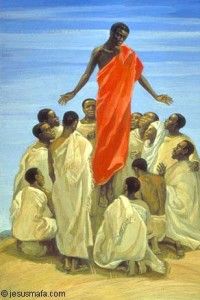Pentecost A + 5.31.20

M. Campbell-Langdell All Santos, Oxnard ( Psalm 104:25-35, 37 ; Acts 2:1-21 ; John 7:37-39 ) “ Out of the believer’s heart shall flow rivers of living water.” Days like Pentecost Sunday are really good for the heart during a pandemic. Because they remind us that we are not alone doing this. That we have the Holy Spirit with us, accompanying us and urging us toward success and thriving. Toward healing and wholeness. On Thursday the clergy of the diocese of Los Angeles heard from a representative of Episcopal Relief and Development, Lura Steele. She told us of the life cycle of a disaster. A disaster begins with a dip and a scare, and then we see people respond (hopefully) heroically, and we feel community cohesion. And then we gradually sink lower as the reality sets in that there is a lot of work to do (and frankly staying at home is less of a novelty after a whil




